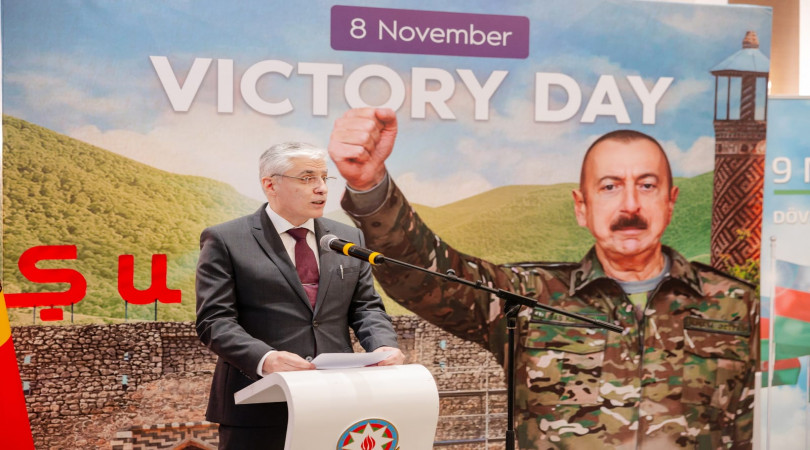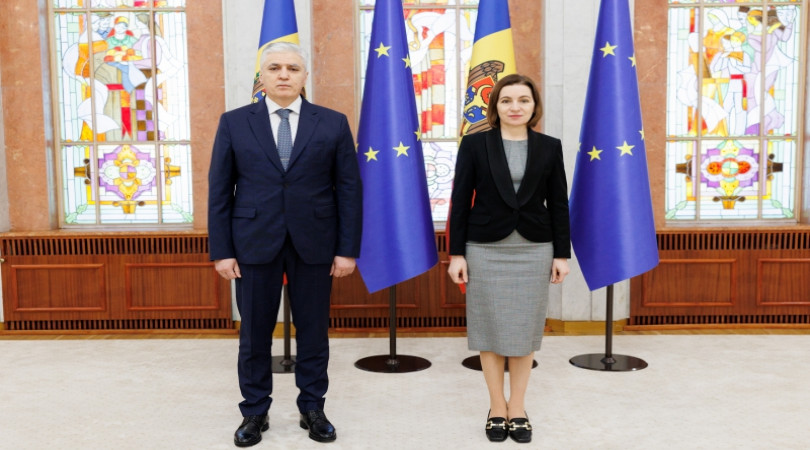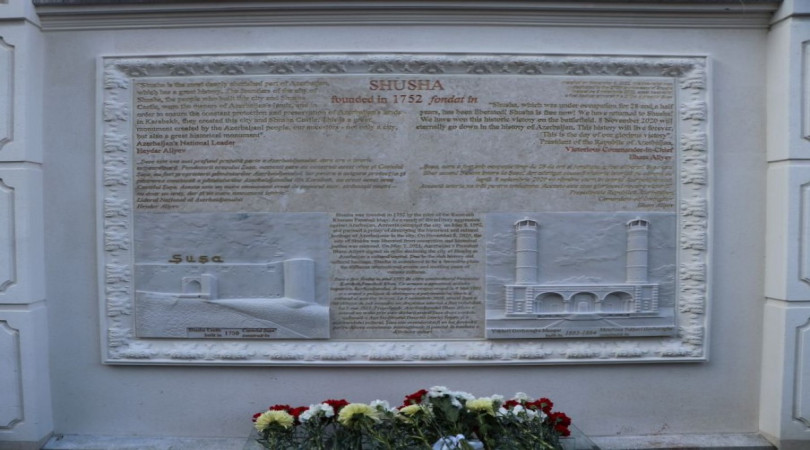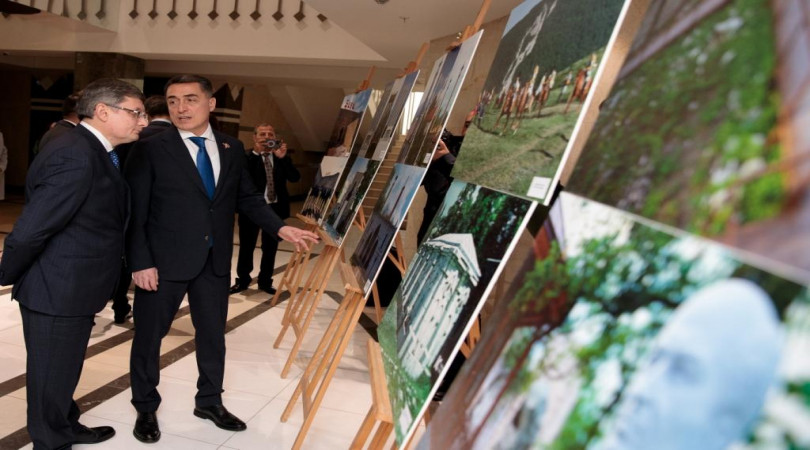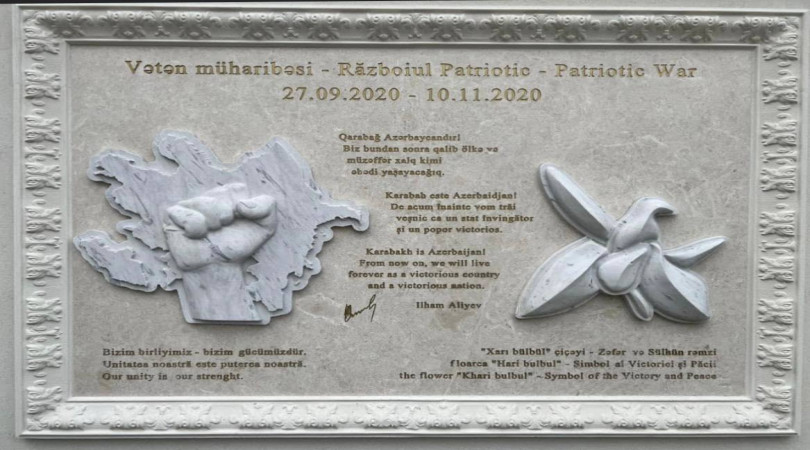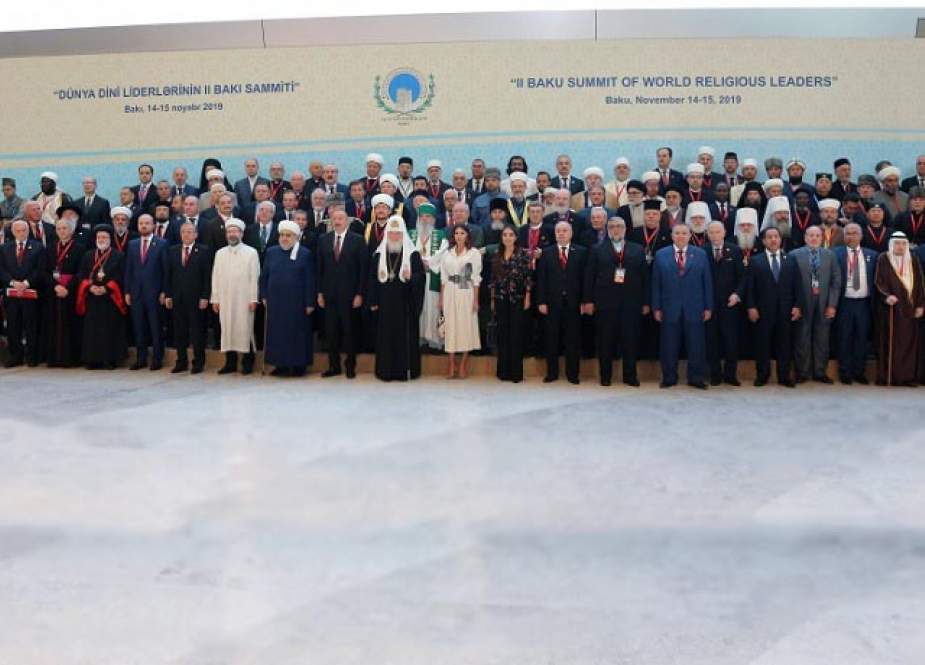Baku Declaration
The Participants of the II Baku Summit of World Religious Leaders, held on November 14-15, 2019 in Baku, the capital of the Republic of Azerbaijan, with the attendance of the religious leaders, heads of
various countries and international organizations, lay
leaders,academicians and religious representatives:
emphasizing that the State of Azerbaijan attaches great importance to the improvement of the international cooperation, shaping of the religion-state relations, strengthening of the inter-civilizational and interfaith relations, protection of diverse ethno-cultural values and traditions of multiculturalism; highly appreciating the decisions of the President of the Republic of Azerbaijan Mr. llhamAiiyev, to hold the II Baku Summit of the World Religious Leaders, and to celebrate of the 70th birthday of Sheikh-ul-lslam A Pashazadeh and the 4oth anniversary of his activity as the Sheikh-ul lslam; as well as Mr. President's participation and profound speech in the II Baku Summit;
emphasizing the significance of the "Baku Process",
initiated and implemented at the initiative of the Head of State of
Azerbaijan, and the international events organized within the years of Multiculturalism and Islamic Solidarity, including "I Baku Summit of World Religious Leaders", and the contribution of "Baku International Center for lnter-Civilizational and Interfaith Cooperaton" (BCIC) to the improvement of the relations among
different cultures and religions and to the creation of the environment of mutual trust;
expressing gratitude to the Organizing Committee for the high-level organization of the II Baku Summit of World Religious Leaders, and for setting up of the grounds for discussions and exchange of views of representatives of various cultures and religions, state, public and scientific figures;
emphasizing the contribution of His Holiness the Patriarch of Moscow and All Russia, Cyril, to lnter-civilizational and interfaith co-operation, and His important role in maintaining peace and security, as well as in creation of the environment of mutual trust in the regional and international scales; highly appreciating the importance attached in Azerbaijan to the inter civilizational and interfaith dialogue during the apostolic visit of His Holiness Pope Francis to Azerbaijan on November 2, 2016, and welcoming the Joint "Human Fraternity for World Peace and Living Together" Document signed by His Holiness Pope Francis and His Eminence Sheikh Ahmad AI-Tayyib on February 4, 2019, in Abu Dhabi;
emphasizing the exceptional contribution of His Holiness the Catholicos Patriarch of all Georgia Ilia II to the preservation of ancient ethnic and religious traditions of Caucasus region, keeping of peace and interfaith understanding in the Region;
noting the contributions of the Religious Leaders of the Caucasus and other Countries in the neighboring Central Asian region to the improvement of the inter-religious and inter-sectarian cooperation, and the preservation of the moral values;
emphasizing proclamation of common position of the Leaders
of Christianity, Islam, Judaism, Buddhism, Hinduism and other religions and creeds from different regions of the World, on the challenges of the Modern World, as well as the importance of proceeding of such events on the regular basis to demonstrate the significance of interfaith and inter civilizational solidarity to the entire World; welcoming the initiative proposed by the Azerbaijani side at the II
Baku Summit of World Religious Leaders related to the
holding of the international conference on theme "Joint Activities
of Religious Leaders and Politicians in countering Hate Speechin Mass-Media, Social Networks and other means", in cooperation with the UN, KAICIID and Baku International Center for Inter-Religious and lnter-Civilizational Cooperation (BCIC), in Baku;
noting the importance of cooperation of World religious leaders with those state and public institutions, international and regional organizations, which serve the ideas of peace, security and humanism;
welcoming the Declaration on "Moving Towards Greater
Spiritual Convergence Worldwide in Support of Equal Citizenship Rights" adopted on 25 June 2018 at the World Conference held at the United Nations Office in Geneva and which received the endorsement of the UN Secretary General;
emphasizing the promotion of cultural diversity, inter-civilizational and interfaith cooperation in an atmosphere of mutual trust and understanding as an essential milestone for peace, security and human solidarity, and noting the importance of increase efforts in this direction;
expressing their deep concern with regard to the sustained worldwide prevalence of terrorism and the rise of discrimination, xenophobia, racism,
as well as the growth of intolerance on the religious and ethnic grounds, exploitation of religion by terrorist and violent extremist groups, destruction of cultural, religious and historical heritage and the massive flow of refugees, internally displaced persons and migrants reaching the scale of humanitarian disaster and the lack of peace, global dialogue and human solidarity to that end;
expressing deep concern with regard to the armed conflicts, acts of terrorism, violence on religious and ethnic grounds resulting along with human victims, by devastation and destruction of cultural and religious heritage, therein, destruction of the cultural and religious monuments pertaining to the World cultural and religious heritage, including those in the occupied territories of Azerbaijan;
particularly emphasizing that religious creeds and value
systems encompassing shared human values significantly contribute to world civilization, cultural and spiritual heritage, enhance humanism, peace and justice;expressing necessity to strengthen the efforts of the
international community concerted towards the resolution of ongoing armed conflicts, as well as addressing aggressive propaganda and instigation of the conflicts on the ethnic and religious grounds that constitute the major obstacle to sustainable progress, stability and security;
call upon all states, the United Nations, international, regional, civil society organizations, as well as religious and lay leaders
- to continue to promote and enhance inter-cultural and interfaith understanding and cooperation;
- to take effective measures to prevent terrorism and crimes against humanity, committed in the name of religion, as well as racist discrimination, offensive xenophobia, lslamophobia, anti-Semitism and Christianophobiya;
- to consider any act of terror in the name of a religion an act of terror against all religions;
- to prevent any attempt by terrorists to use the sacred values of religions for realization of their malign aspirations;
- to increase cooperation in preventing the spread of
harmful ideologies and propaganda that promotes violence on
racial, religious and ethnic grounds through Internet
and other communication and information channels, and to encourage the education of youth in this area as well as in common citizenship;
- to enhance the global dialogue and increase collective efforts on the prevention of threats and challenges to international stability and security through the central coordinating role of the United Nations;
- to recognize that armed conflict, persecution and violence, including terrorism, are among the factors, which give rise to large refugee movements, and address the root causes of such crisis situations in order to prevent or resolve conflict by peaceful means;
- to make practical efforts to prevent provocations and violence in the sacred temples of all religions, including Jerusalem,the Holy Place of the Abrahamic religions;
.to uphold the respect to the Charter of the United Nations and the universally recognized principles and norms of international law, in particular the respect for the principles of sovereign equality, territorial integrity and inviolability of borders, to contribute to a fair peaceful settlement of ongoing conflicts around the world, including those in the Middle East, as well as Armenia-Azerbaijan Nagorno Karabakh conflict in full conformity with the above-mentioned principles;
.to work together to promote the culture of acceptance and respect to religious, cultural and ethnic differences in accordance with the UNESCO Chart;
- to respect The Universal Declaration of Human Rights, the United
Nations Convention on the Rights of Child
and encourage cooperation of religious, lay, scientific and
public figures in promotion and protection of human rights, as
well as the rights of women and children.
Baku, November 15, 2019

